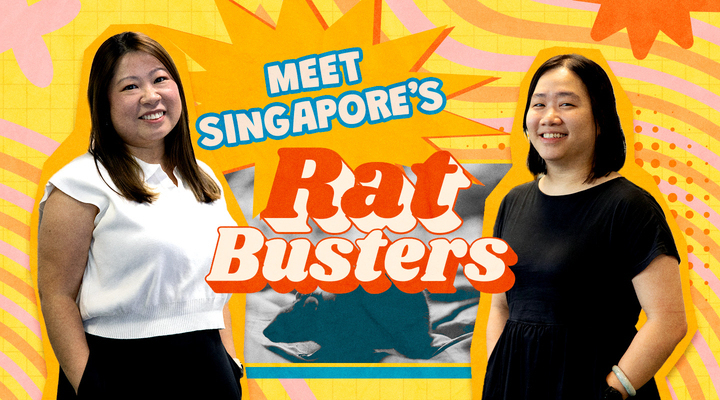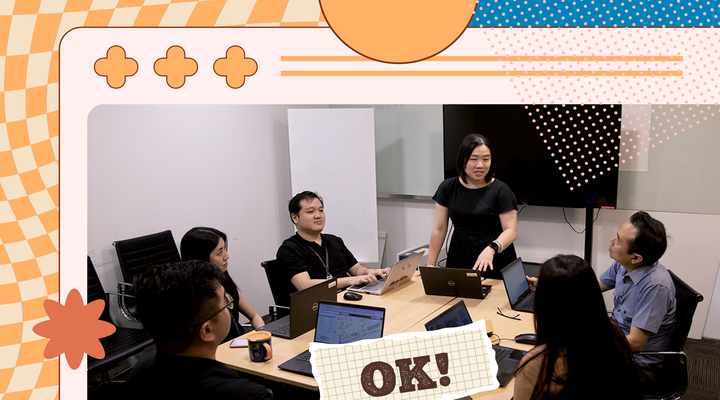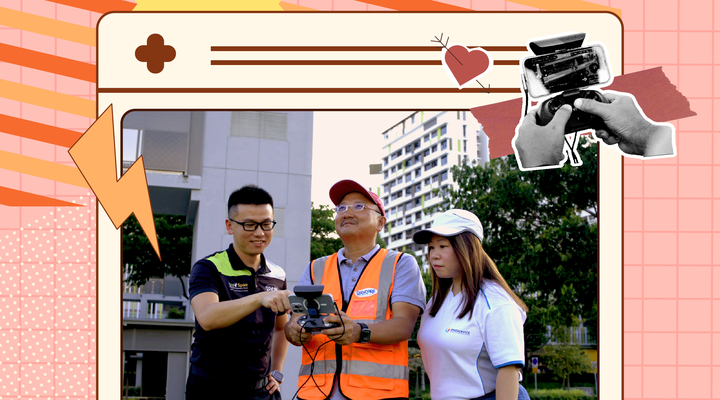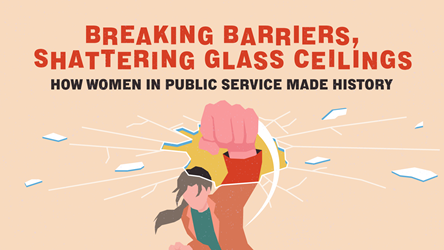Do First, Talk Later: How MSO Sniffs Out And Busts Rats

Unless you’ve been living in a burrow, you would have seen that viral video of the rat twitching on a tray that made headlines at the end of 2023.
That incident was one of many that put the spotlight on the rat situation in Singapore. Pest control firms have reported a 15 to 20% increase in infestations over the past year, while the National Environment Agency (NEA) detected more rat burrows in public areas in 2023 than 2022.
While some may find them adorable, rats carry zoonotic diseases that can potentially lead to disease outbreaks. Rats need to be kept at bay, and the Government and Town Councils have taken decisive steps to address the issue. These include experimenting with robot detectors, educating shop operators on how to maintain a clean environment, and rat-proofing their premises.
Members of the public have a role to play too—on top of keeping their environment clean, they can help agencies and Town Councils by pinpointing hotspots and reporting rat sightings via the OneService App.
Challenge spoke to Emily Loh and Amanda Lee from the Municipal Services Office (MSO) to find out how MSO contributes to this multi-faceted effort and how the organisation and its people have grown.
On the Ground and in the Skies

Since its inception 10 years ago, the MSO has come a long way. Besides coordinating complex cases and bridging inter-agency gaps, they also forecast issues on the horizon and test new operating models. These, together with innovative approaches to community activation, are just some of the ways MSO, partner agencies and Town Councils are working together to make a difference for residents.
A project that Amanda took on recently is a rat management pilot at Ang Mo Kio town. This multi-stakeholder project involved Ang Mo Kio Town Council, NEA, the Singapore Food Agency (SFA) and MSO, which led to a set of “plug and play” measures that agencies and Town Councils could implement readily in other towns.
For example, the team struck gold in an often overlooked area—litter bin design. Over a few iterations with stakeholders, Amanda and the team developed a new design that significantly restricted rat access and was easy for older conservancy workers to lift and clear. The team’s ingenuity allowed them to resolve not one, but two, problems.
While Amanda worked the ground, Emily “took to the skies” to trial the use of a thermal-imaging drone as a safer, more effective and more productive means of detecting rodent burrows and stagnant water.
Emily shared that, before the trial, inspecting for rats was a largely manual and time-consuming process. Inspectors also had to watch out for potholes in the ground and other hidden hazards, like snakes.
With the thermal-imaging drone, MSO and other partnering agencies can cover larger areas more quickly and safely, with greater accuracy and precision. This allows for more precise burrows and stagnant water treatment, reducing the need for manual labour.
Rallying Others, Moving Forward as One

Being people-oriented, Amanda and Emily relish the work of the municipal services sector, where issues are often challenging and cut across multiple agencies and non-government partners. This gives them the opportunity to work with multiple stakeholders, adding vibrancy to their work.
Of course, there is the occasional challenge of managing divergent views. However, Amanda and Emily have slowly but surely won colleagues over with their resident-centric “Do First, Talk Later” approach to issues—a service philosophy that has become baked into MSO’s DNA. By continuously keeping residents in mind, stakeholders are more willing to set aside their differences and focus on a common cause.
“It's not about finger-pointing when we have an issue. Rather, it’s about quickly stepping in to resolve the ground situation first for residents’ benefit. Then, we figure out backend how to improve inter-agency processes, such that the issue does not recur. It helps that everybody is really passionate about serving residents and putting their best foot forward.”
- Emily Loh, Senior Assistant Director, Integrated Operations, MSO
Moreover, the breakthroughs in Amanda and Emily’s projects could not have come through without the help of more seasoned colleagues in NEA, SFA and the Town Councils. For instance, Emily and Amanda relied heavily on and benefited from NEA’s technical knowledge and experience in running other improvement projects.
Rallying Ourselves to Take on New Challenges

It may surprise some that Amanda and Emily “stumbled” into their current career sweet spots in MSO—in fact, it was not too long ago that even the word “municipal” was a foreign term (not to mention a mouthful!) to them, having come from vastly different career paths.
Emily took the plunge from a corporate development and volunteer management role to dive into ground operations and tackle municipal issues head-on—and the journey has not disappointed her. Emily has gained new skills in process and job redesign, ops-tech deployment, and contract management.
Experimenting with the thermal-imaging drone was something she had never imagined doing as part of her work. Despite being new to ops-tech, she enthusiastically took up the challenge and collaborated with participating agencies to transform equipment typically used for detecting water leaks in buildings into a more effective inspection tool. Her first brush with ops-tech has since spurred Emily to experiment with more innovative solutions to resolve residents’ pain points effectively and efficiently.
“I guess I’m fortunate that my nature and MSO’s DNA are aligned in that we are seldom content with the status quo. It’s important to me that the Public Service continually finds better ways of doing the right things.”
- Amanda Lee, Assistant Director, Service Quality, MSO
On the other hand, Amanda started her career in the private sector and joined the then Agri-Food and Veterinary Authority of Singapore (AVA) and later NParks, specialising in communications. As an MSO officer, she has expanded her capabilities from feedback management to project administration and stakeholder engagement.
Amanda and Emily’s growth mirrors MSO’s evolution—from a coordinating body to a pathfinder for municipal service delivery and community activation. However, while the work and skills required have changed, the organisation’s commitment to action and continual improvement has not.
These give Amanda, Emily and their colleagues comfort and confidence to adapt to new challenges as they arise with a spring in their step—and perhaps a few more innovations up their sleeves.

Want to get more stories like this? Join our Telegram channel: https://t.me/psdchallenge.
- POSTED ON
Sep 6, 2024
- TEXT BY
Jayme Teo
- PHOTOS BY
Nashrul Merza
Amirul Nashtrie
Mandy Ong









